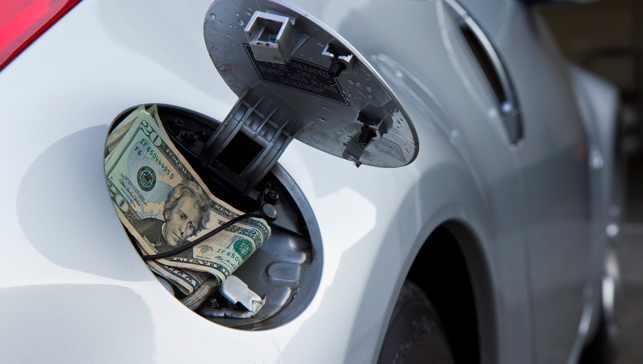By Tim Anaya and Wayne Winegarden
The news that average gas prices per gallon in Los Angeles County have soared past $6 per gallon has triggered the “Great Gas Tax Rebate Debate of 2022.” Democrats and Republicans in Sacramento are pushing dueling gas tax relief proposals.
Legislative Republicans have proposed suspending state gas taxes for a six month period with Assembly Bill 1638, which would save motorists 51 cents per gallon.
Attempting to “meet the moment” of Californians growing increasingly frustrated by sharply increasing gas prices, Gov. Gavin Newsom this week proposed the details from his long-awaited gas tax rebate plan, which he first discussed in his State of the State address earlier this month.
Newsom’s $11 billion gas tax rebate plan would give car owners $400 per vehicle, capped at two vehicles (including owners of electric cars), $523 million “to pause the inflationary adjustment to gas and diesel excise taxes” that was slated to take effect July 1, and provides $2 billion for “free public transportation for three months” among other things.
It also speeds up $1.75 billion in spending of “the Governor’s historic ZEV package”, which we have previously written would provide zero immediate relief to those struggling from higher gas prices.
Legislative Democrats are cool to Newsom’s plan, but their hands are likely tied with gas prices soaring and rank-and-file Democrats growing weary of facing a voter revolt. Last week, a group of Democrats got out ahead of leadership proposing “a $400 tax rebate check to reduce the financial pain they’re suffering because of gas prices and the rising costs of everyday goods.”
According to the Los Angeles Times, every California income tax filer would get a check under the plan, which “equals the amount a typical Californian pays in state excise taxes on gasoline per year.”
The Senate and Assembly Democratic leadership responded by proposing a plan to give “taxpayers and dependents making under $125,000 in taxable income for single filers or $250,000 for joint filers” a $200 rebate, the Center Square reports.
Of course, none of this would be immediate relief. It would all be debated and discussed as the Legislature crafts the 2022-23 state budget. Barring a change, it would be July at the earliest before motorists get their rebate, whatever form it takes.
The “Great Gas Tax Rebate Debate of 2022” centers around a simple question – which proposal to lower taxes will benefit Californians the most.
While suspending the gas tax would be the fastest and simplest way to provide relief, Democrats argue that Californians may not receive the full relief expected. There’s some truth to this.
Like all taxes, the imposition of the gas tax is shared between the suppliers (the gas stations) and the consumers. While gas is inelastic – we all need to buy it to drive to work or school regardless of the price – it’s not perfectly inelastic. A gas tax holiday would lower prices for consumers, but not necessarily by the full amount of the tax.
But a one-time giveaway of $200 or $400 – while surely welcome to Californians struggling to make ends meet – isn’t really a good use of California’s multi-billion dollar surplus. While better than spending the surplus funding another big government program, the best way to give Californians meaningful and lasting relief would be addressing our state’s nation-leading tax rates.
Cutting tax rates would not only bring lasting and permanent relief to millions struggling, but it would also give people a boost without increasing inflation. The improved incentives to work and invest in the 5th largest economy in the world would significantly improve our long-run productive capacity and would consequently be part of the solution.
But don’t hold your breath that this will be coming from Sacramento any time soon. The political winds may be pushing Sacramento liberals to do something to bring people relief from high gas prices – but it would take a hurricane to prod them to enact permanent tax relief.
Tim Anaya is the Pacific Research Institute’s senior director of communications and the Sacramento office. Wayne Winegarden, Ph.D. is senior fellow in business and economics and director of PRI’s Center for Medical Economics and Innovation.

